Admired by Mandela, This Forgotten Indian Helped South Africa Overcome Apartheid
"I can say without fear of contradiction that there is no one at the United Nations who has done more to expose the injustices of apartheid than he ( ES Reddy) has."
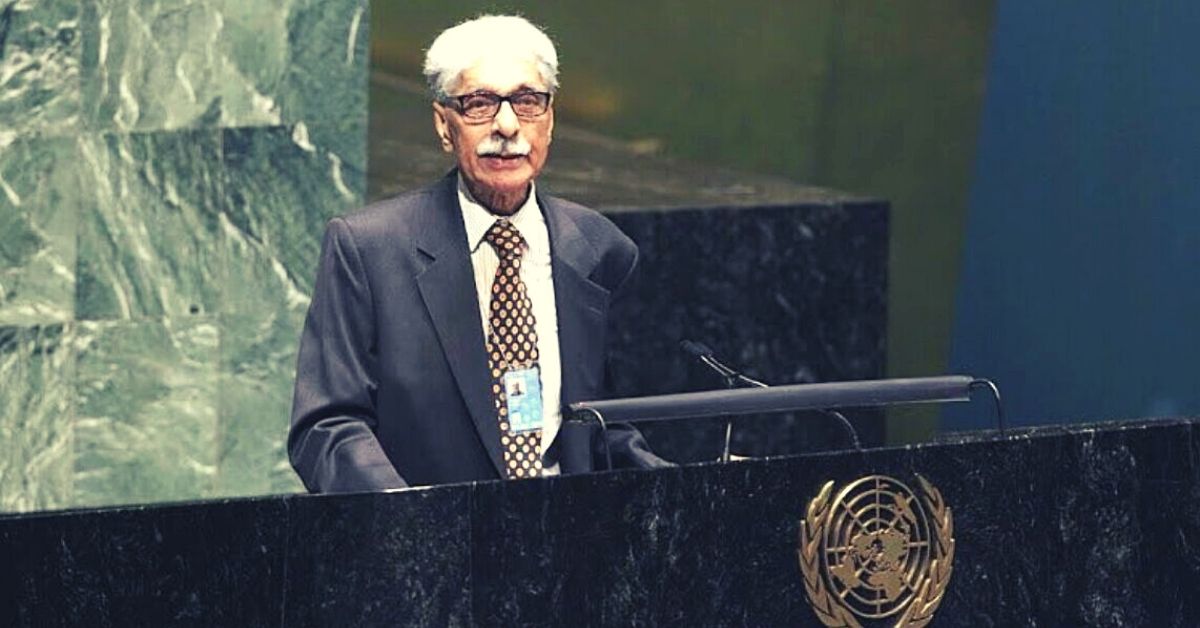
On 1 November 2020, the world lost a treasured Gandhian in Enagu Sreenivasulu Reddy, who died at the age of 96. Known to his friends and colleagues as ES Reddy, he had fought for freedom as a young teenager against the colonial government in British India.
(Image above courtesy Twitter/Cyril Ramaphosa)
Subsequently, however, he travelled to the United States working for the United Nations, where he played a critical role in turning global opinion against the racist policies of South Africa’s apartheid government.
Establishing and leading the UN’s Centre Against Apartheid, he worked in close partnership with the Oliver Tambo, a preeminent leader of the African National Congress (ANC) living in exile.
Everyone in the ANC from the legendary Nelson Mandela downwards recognized how much this reserved, tall and slight Indian man had done to facilitate their struggle for justice by garnering international support.
In other words, across the span of three continents, ES Reddy had successfully fought for the principles of justice, freedom and racial equality. Following his retirement, he took on another avatar as one of the leading global scholars on Mohandas Karamchand Gandhi, collecting a plethora of primary material on this revered leader of the freedom struggle.
His kind spirit allowed him to share the material he collected freely to anyone who asked.
It’s criminal how little many Indians know of ES Reddy and his work.
Early Days
Born on 1 July 1924 in a small village called Pallapalli in Andhra Pradesh, ES Reddy’s father was an entrepreneur mining and exporting mica, mostly to England, while his mother was a housewife. Living with four brothers and a sister, he lived in a deeply political household where both his parents participated in the freedom struggle.
His parents were ardent supporters of MK Gandhi. EV Narasa Reddy, his father, spent three months in prison during the early 1940s for getting involved in Gandhi’s political campaigns in Gudur town. In 1933, his mother gave all her jewellery to Gandhi when he visited Gudur during a tour to collect funds for the upliftment of the Dalit community. Through his parents, he learnt about Gandhi and his principle of Satyagraha and non-violence.
In 1939, as a young teenager, he led a youth strike on 26 January, which Indian nationalists at the time celebrated as Independence Day. Three years later, on the same day, he hoisted the national flag atop his college in Chennai, for which he was suspended.
“Well, I finished my BA in India in 1943. It was wartime [World War II], and I wanted to come abroad. I wasn’t particularly interested in going to England. Going abroad had a value in India in terms of education, especially because England was the colonial power for us. So, I thought the alternative was the United States,” Reddy said in this 2004 interview.
A year after World War II, Reddy arrived in the United States in March 1946. Initially, he had come to study in chemical engineering in Illinois but ended up pursuing his Masters’ in political science at New York University. After completing his Masters’ in 1948, he moved to Columbia University, and by the following year, he got a job working in the United Nations.
However, his interest in South Africa and their affairs had begun back in the early 1940s.
“During the war, the West, the United States and Britain, talked about four freedoms and all kinds of things, [the] Atlantic Charter (goals for the world after WWII), but it didn’t apply to India or South Africa. So there was a resurgence, a movement in South Africa…So we were very much interested in South Africa in India because a lot of Indians were there. And apart from that, Gandhi was there, [and] had struggled a long time before. So there was this memory and sentiment about South Africa. And of course, Nehru was talking about South Africa, Gandhi was talking about South Africa and so on,” says Reddy in the 2004 interview.
In New York, Reddy got involved with the Council of African Affairs, which was one of the first solidarity movements for freedom struggles in the continent working with luminaries like its president Paul Robeson and Dr WEB Du Bois, the legendary African American sociologist. In 1946, he even met a delegation led by Dr A.B Xuma, the President-General of the ANC, which included delegates of the South African Indian Congress, at the Council of African Affairs.
The delegation spoke at a UN General Assembly session, addressing the ill-treatment meted out to Indians in South Africa, an issue raised by the provisional Government of India led by Prime Minister Jawaharlal Nehru, police brutality against the [African] miners strike and the wider struggle for racial equality.
As Reddy goes on to say in the 2004 interview, “there was a strong feeling in India which was instilled by Nehru in a sense, and Gandhi, that India’s freedom should be the beginning of freedom of all the colonies. That we have a duty to all the colonies.”
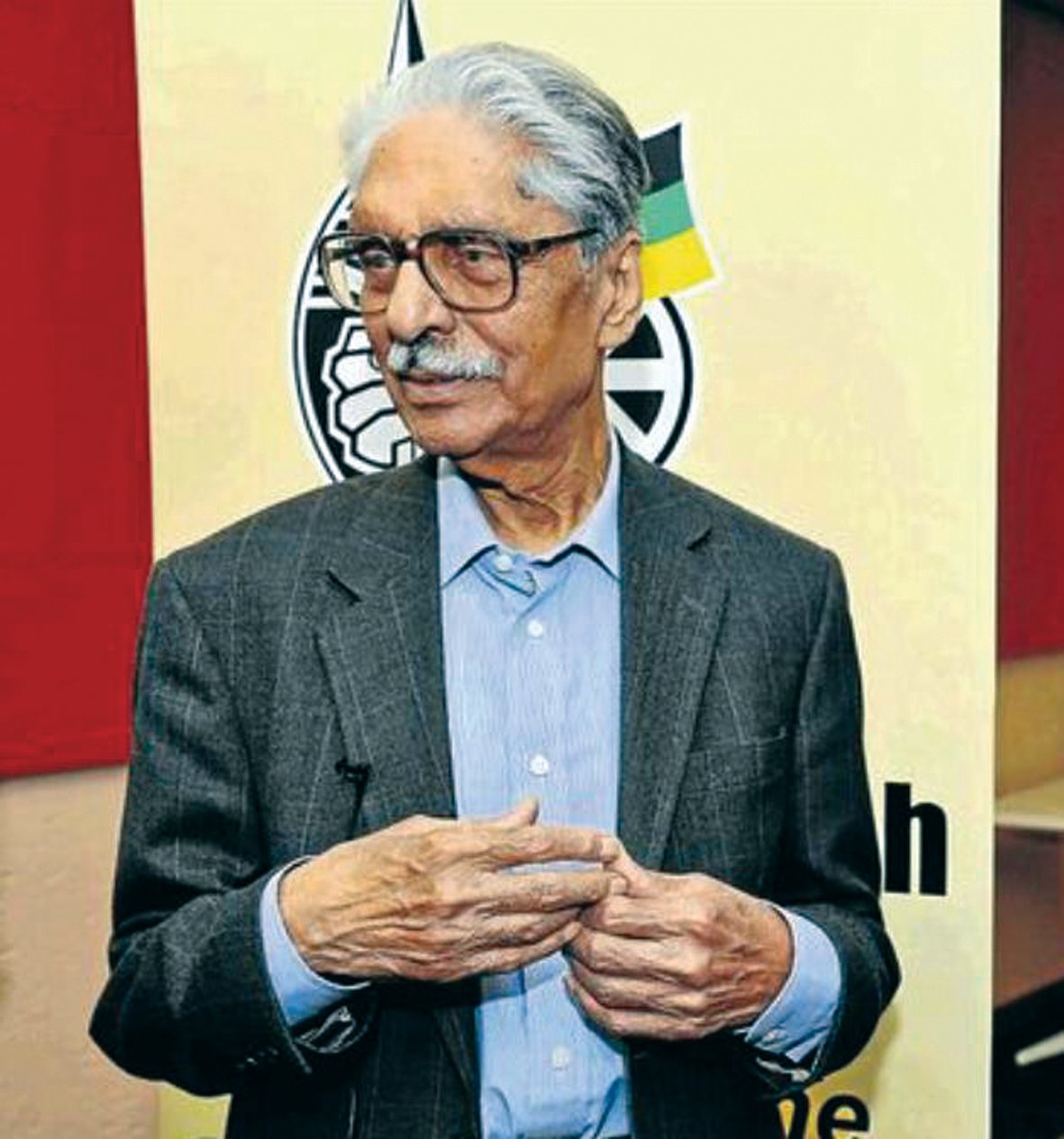
United Nations & Fight Against Apartheid South Africa
On 26th May 1949, he was employed full time with the United Nations, while only a year earlier, the National Party in South Africa instituted segregationist apartheid policies. Reddy’s first job as a political affairs officer was to research events in Africa and the Middle East. This gave him further opportunity to read newspapers from South Africa.
However, Reddy’s work for racial equality and freedom South Africa didn’t take off until November 1962, when the UN General Assembly passed resolution 1761 condemning the segregationist policies of Apartheid established by the South African government.
The resolution also requested Member States of the U.N. General Assembly to break off diplomatic relations with South Africa, impose economic sanctions and establish the creation of the UN Special Committee against Apartheid. Initially, many Western nations boycotted the Special Committee because they disagreed with the resolution to boycott South Africa. But it found other allies and Reddy was appointed principal secretary.
“From 1963 to 1984 he was the U.N. official in charge of action against apartheid, first as principal secretary of the Special Committee Against Apartheid and then as director of the Centre Against Apartheid. United Nations action both legitimated and was influenced by the momentum of popular mobilization against apartheid. Reddy was probably the most consistent and influential of the U.N. officials working behind the scenes, ensuring that the United Nations not only represented governments but also helped build bridges between liberation movements and their supporters around the world,” notes South Africa History Online. He was also Assistant Secretary-General of the UN from 1983 to 1985.
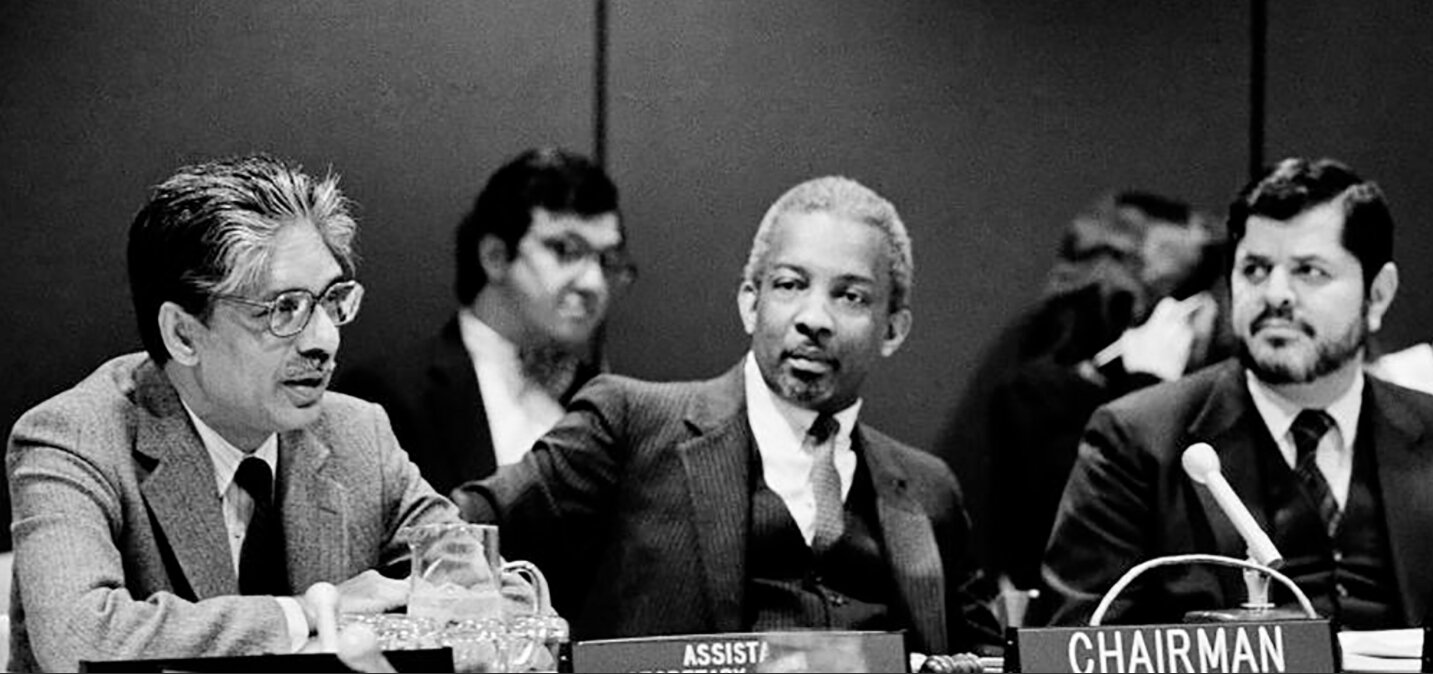
Establishing the Centre Against Apartheid under the umbrella of the UN in 1976, he organised a series of international conferences, seminars and international campaigns against the apartheid government. He also used the platform to offer scholarship and other monetary assistance to political prisoners and their families in South Africa.
Recognition for his work came from the likes of Oliver Tambo, President of the ANC between 1967 to 1991. He expressed a “profound appreciation of your work and your infectious devotion and commitment to the liberation struggle in South Africa.”
Meanwhile, at a public meeting on 19th March 1985, Sean MacBride, a Nobel Peace Prize winner and former UN Commissioner for Namibia, had this to say:
It has been my privilege to work with E.S. Reddy for close on 20 years, and I can say without fear of contradiction that there is no one at the United Nations who has done more to expose the injustices of apartheid and the illegality of the South African regime than he has. E.S. Reddy has done so with tremendous courage and ability; he dedicated his entire energy and skills to the liberation from oppression of the people of Southern Africa. He had to face many obstacles and antagonisms, coming from the Western Powers mainly, but he had the skill, courage and determination necessary to overcome the systematic overt and covert opposition to the liberation of the people of Southern Africa.
Describing his own journey, Reddy spoke of his luck in working for something he truly believed in, but also expressed the frustrations and patience involved.
“It could have been an extremely frustrating job because you are doing things, but things are getting worse in South Africa. It was never getting better. Every day it was getting worse. And things went on and on and on. But I was not frustrated. Once I remember something went wrong in the UN, and I was very frustrated, and a leader of the African National Congress was with me. He said, ‘E. S., why are you frustrated? We are not frustrated. It’s none of your business to be frustrated. We are going to win.’ So I kept that in mind,” he said in the 2004 interview.
He retired from the UN in 1985 and continued to live in New York, where he dedicated his time to editing various books and anthologies on Gandhi and the anti-Apartheid movement.
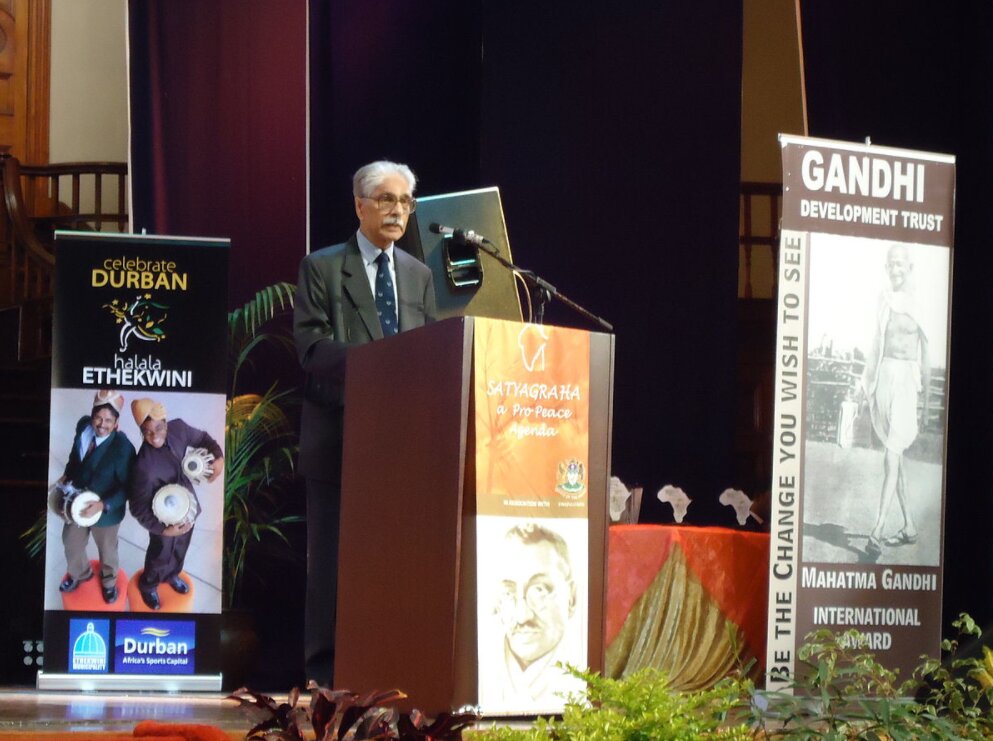
“After apartheid came to an end in the early 1990s, Reddy travelled twice to South Africa. He had come to receive awards from a grateful citizenry (one named for Tambo). But he had gifts of his own to bestow: documents from western archives about freedom-fighters that he passed on to them or their relatives. These included the Nobel Peace Prize acceptance speech of the former president of the African National Congress Albert Luthuli, which he had specially kept for Luthuli’s widow who had never seen or heard it before,” writes renowned historian Ramachandra Guha, for the Financial Times.
(Amongst other honours, he was awarded the Order of the Companions of O. R. Tambo, which is granted by the President of South Africa to foreigners who have promoted South African interests and aspirations.)
In fact, Guha dedicated his book ‘Gandhi Before India’ to “ES Reddy: Indian patriot, South African democrat, friend and mentor to scholars of all nationalities.”
The legacy he leaves behind is quite immense.
His selflessness, passion for justice and unbridled desire for racial equality all over the world went well beyond international borders. It’s time we recognise this son of India for his immense contributions.
(Edited by Vinayak Hegde)
Like this story? Or have something to share? Write to us: [email protected], or connect with us on Facebook and Twitter.

Similar Story
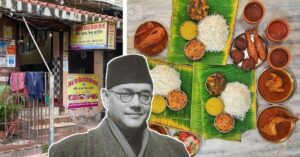
Netaji Bose’s Favourite Eatery Has Been Serving Traditional Delicacies for Over 100 Years
The Swadhin Bharat Hindu Hotel in Kolkata, started by Mangobindo Panda, is a century-old pice hotel where Indian freedom fighters like Netaji Subhas Chandra Bose would enjoy Bengali delicacies.
Read more >
If you found our stories insightful, informative, or even just enjoyable, we invite you to consider making a voluntary payment to support the work we do at The Better India. Your contribution helps us continue producing quality content that educates, inspires, and drives positive change.
Choose one of the payment options below for your contribution-
By paying for the stories you value, you directly contribute to sustaining our efforts focused on making a difference in the world. Together, let's ensure that impactful stories continue to be told and shared, enriching lives and communities alike.
Thank you for your support. Here are some frequently asked questions you might find helpful to know why you are contributing?


This story made me
-
97
-
121
-
89
-
167












